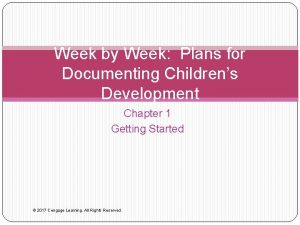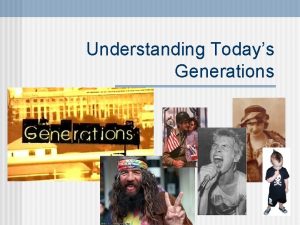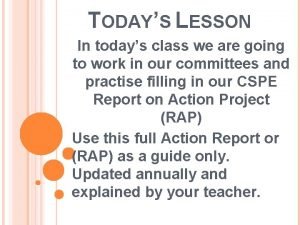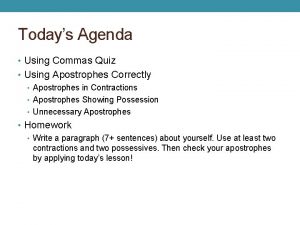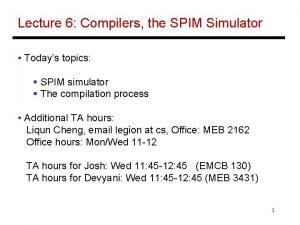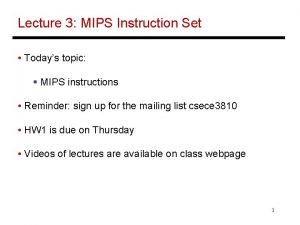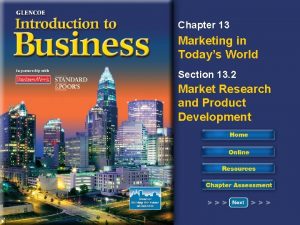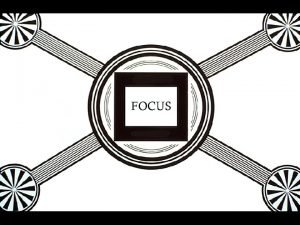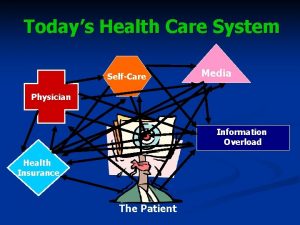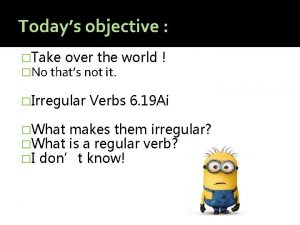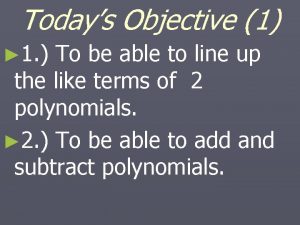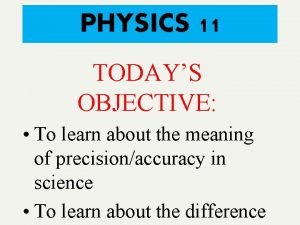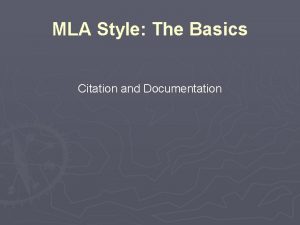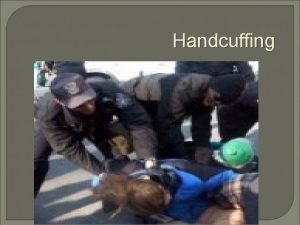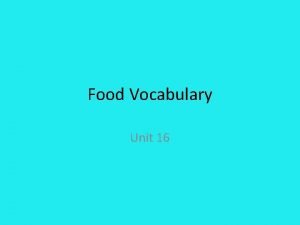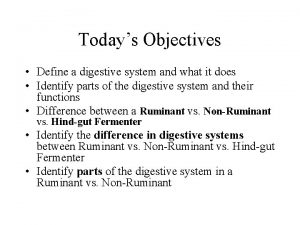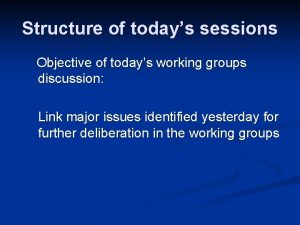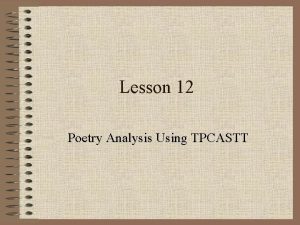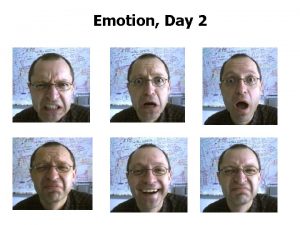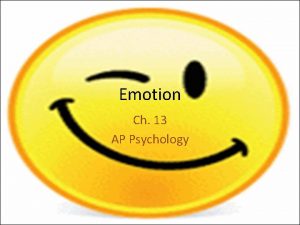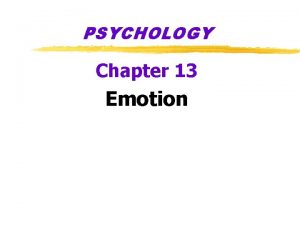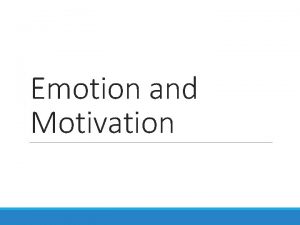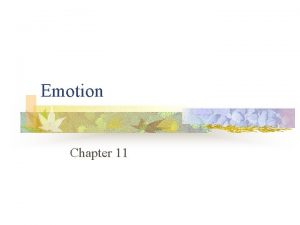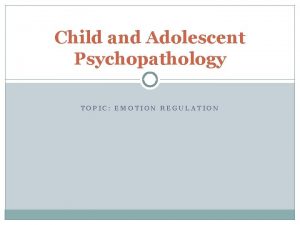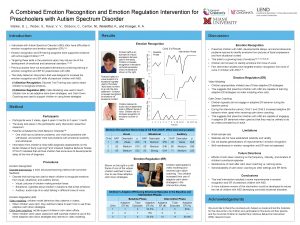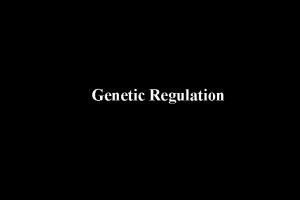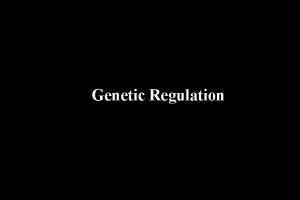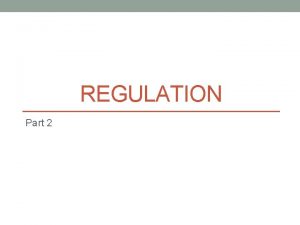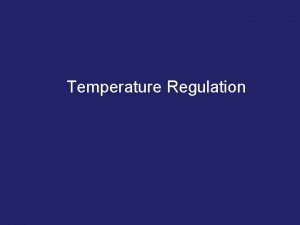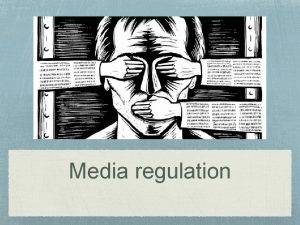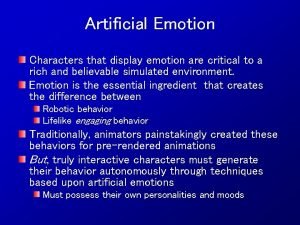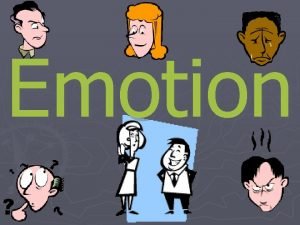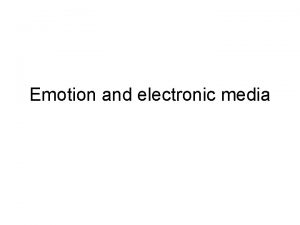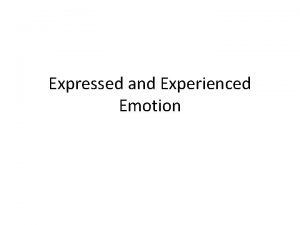Emotion regulation Week 11 Todays questions From Week


































- Slides: 34

Emotion regulation Week 11

Today’s questions • From Week 4 -9, we examined the functionality of emotions • This week we examine dysfunctionality of emotions • How to we control our emotions? • What works, what doesn’t? 2

Headlines read “'Starbucks uncle' captures Hong Kong hearts during flooding” http: //www. bbc. com/news/world-asia-china-37711677? SThis. FB Part 1 RECIPES FOR EMOTIONAL REGULATION 3

Questions • When was the last time you “lost control” of your emotions? • When was the first time you “lost control” of your emotions? 4

Let’s talk about babies (again!) • Babies are fussy (Yes, “fussy” is the scientifically correct terminology) • Why are they fussy? – Children do not come into this world with all of the skills necessary to regulate their behavior • Brain development is important 5

Recipes needed for self-control This is my current state • Accurate simulation of future (see Week 14) Success = No • Self-monitoring • Cognition + Metacognition (the focus of this seminar) This is how I will achieve it Success = Yes This will be my future state 6

Part 2 WHY REGULATE EMOTIONS? 7

How are emotions dysfunctional? • Wrong intensity (e. g. , mania) • Wrong duration (e. g. , depression) • Wrong frequency (too frequent, too infrequent – flat affect) • Wrong type for a particular situation (e. g. , laughing at a funeral, Tourette’s syndrome) • Wrong consequences in cognition and behavior (e. g. , happy jury) 8

How can emotions be regulated? Dysfunctionality Wrong intensity Wrong duration Strategy Hiding one’s feelings of distress By sharing good news with others Wrong frequency Wrong type for a particular situation Wrong consequences in cognition and behavior ____________ seeing the humorous side of an embarrassing situation Be self-aware 9

Emotional regulation failures Are all three are showing self-control failures? Love? Lust? Jealous-rage? • Emotions fluctuate • Often this fluctuation is adaptive, and perhaps uncontrollable • Prolong extremities of emotional intensity is suboptimal 10

Do you always want to exert 100% control on your emotions at a fixed point? • You would not survive • Life would be too dull • Most prominently – flat affect in depression, phasal schizophrenia 11

Down-regulation vs. up-regulation • People often describe efforts to down-regulate negative emotions (anxiety, sadness, guilt, etc. ) • When do you up-regulate emotions? – Professor warning you not to be late – Buying flowers for your girlfriend/wife • Not all emotions can be up-regulated – Genuine surprise, by definition, cannot be upregulated 12

Regulating whose emotion? Target = SELF Decrease (downregulation) Negative _______ Positive Increase (upregulation) Firing up (e. g. , before sports) Not laughing when your enemy slips on a banana _______ 13

Regulating whose emotion? Target = OTHERS Negative Decrease (downregulation) Helping others (recall: empathyaltruism debate) Increase (upregulation) Inducing guilt, shame for immoral conduct ______________ Positive 14

The realities of life • In life, you will meet jerks, people who manipulate others’ emotions for their own personal gain at others’ loss • Typical emotions used by manipulators: – Happiness, e. g. , _______ – Fear, e. g. , _______ – Hope, e. g. , _______ – Anger, e. g. , _______ – Guilt, e. g. , _______ 15

Guilt-tripping in romantic relationships • No one is perfect. You will do immoral things at some point in your life. 1 • Guilt motivates reparative behaviors • Individuals high in attachment anxiety are most susceptible • Short-term gains, long-term losses in romantic relationship satisfaction • Applies to other social relationships as well (except when you come late to class) 1 Ariely (2012). The honest truth about dishonesty: how we lie to everyone---especially ourselves. 16 Overall et al. (2014). The benefits and costs of inducing guilt in romantic partners. . J Pers Soc Psy.

Part 3 WHAT WORKS – WHAT DOESN’T? 17

The sheer variety of strategies • Focusing on one’s breathing, punching a pillow, texting a friend, going for a run, having a drink, taking a nap, reading a book, quitting one’s job, biting one’s lip, or thinking about a situation differently… • What works – what doesn’t? 18

Marshmallow test • https: //www. youtube. com/watch? v=Yo 4 WF 3 c. Sd 9 Q • Note down the strategies that work and those that don’t 19

Process model of emotional regulation Situation • Selection • Modification Attention • Deployment Appraisal • Cognitive Δ Response • Modulation 20

Situation • Selection – taking actions that make it more (or less) likely that one will be in a situation where you will experience desirable (or undesirable) emotions – E. g. , join CCA, get married, avoiding “toxic” people • Modification – taking actions that directly alter a situation in order to change its emotional impact – Example: _________________ 21

Attention • Deployment: directing one’s attention with the goal of influencing one’s emotional response • Example: – Distraction (marshmallow test) + - Focal event (+) + - + 22

Appraisal • Modifying one’s appraisal of a situation in order to alter its emotional impact • Recall: – Fundamental attribution error – Spotlight effect 23

Response modulation • Directly influencing experiential, behavioral, or physiological components of the emotional response after the emotion is well developed • Examples: – Chocolate – biting your lips and trying to hide your anger 24

Class exercise: Recovery from a breakup • Work in pairs: Imagine your friend recently broke up with his/her partner. (If you know of an example – not necessarily of yourself – use it. ) • Using the process model, how would you counsel her? 25

Is there a “best” strategy? • Depends on – the person – the situation – the goals that person has in that situation • Example: Reappraisal is probably maladaptive in risk taking scenarios – Optimistic biases in financial investments • Emotion regulation flexibility: matching of emotion regulation strategy to environmental circumstances 26 Bonanno & Burton (2013). Regulatory flexibility: An individual differences perspective on coping and emotion regulation. Persp Psy Sci.

How important is emotion regulation? Country Society Couples You 27

Outcomes of your interoceptive ability • Scientifically, “gut feelings” literally means interoception. Cog Emo Body • These gut feelings are formed by both cognitive and emotional factors 28 Kandasamy et al. (2016). Interoceptive ability predicts survival on a London trading floor. Nature.

Global conflict resolution • Country-level anger – WWII: Japanese vs. Chinese – WWII: Germany vs. many European countries – Gaza strip: Israel vs. Palestinian • Cognitive reappraisal helps reduce anger • But must be coupled with the motivation 29 Halperin et al. (2013). Can emotion regulation change political attitudes in intractable conflict? Psy Sci.

What doesn’t work Suppression Venting anger • Suppression leads to rebound effects Someone pissed you off… Anger Aggression (noise blast) • Why? – Suppression is effortful – Expending effort on one domain leads to rebound effects on another domain Doing Distraction Rumination nothing After punching bag 30 Bushman. (2002). Does venting anger feed or extinguish the flame? Pers Soc Psy Bull.

Summary of effectiveness Perspective-taking Reappraising emotion Suppressing thoughts about event Suppressing experience of emotion Suppressing expression Concentration Cognitive appraisal Response modulation Distraction -0. 5 -0. 4 -0. 3 -0. 2 -0. 1 0 0. 1 Effect size (d) 0. 2 0. 3 0. 4 0. 5 31 Webb & Sheeran (2012). A meta-analysis of the effectiveness of strategies derived from the process model of emotion regulation. Psy Bull.

But there is one more strategy: Drugs • • Selective Serotonin Reuptake Inhibitors, SSRI – Celexa (citalopram) – Luvox (fluvoxamine) – Paxil (paroxetine) – Prozac (fluoxetine) – Zoloft (sertraline) Tricyclics – Anafranil (clomipramine) – Elavil (amitriptyline) – Norpramin (desipramine) – Pamelor (nortriptyline) – Aventyl Sinequan (doxepin) – Surmontil (trimipramine) – Tofranil (imipramine) – Vivactil (protriptyline) Others – Effexor (venlafaxine) – Desyrel (trazodone) – Ludiomil (maprotiline) – Parnate (tranylcypromine) – Wellbutrin (bupropion), Zyban Antianxiety Drugs – Ativan (lorazepam) – Bu. Spar (buspirone) – Klonopin (clonazepam) – Valium (diazepam) – Xanax (alprazolam) • • • Antimanic Agents (Mood Stabalizers) – Depakene (valproic acid, sodium divalproex), Depakote sprinkles – Lamictal (lamatrogine) – Lithium, (lithium carbonate), Eskalith, Lithobid – Tegretol (carbamazepine), Carbotrol Antipsychotics – Clozaril (clozapine) – Haldol (haloperidol) – Haldol Decanoate (long acting injectable) – Mellaril (thioridazine) – Moban (molindone) – Risperdal (risperidone) – Seroquel (quetiapine) – Stelazine (trifluoperazine) – Zyprexa (olanzapine) Stimulants – Adderall (amphetamine, mixed salts) – Concerta (methylphenidate, long acting) – Dexedrine (dextroamphetamine), Dextrostat – Dexedrine Spansules (dextoamphetamine, long acting) – Metadate (methylphenidate, long acting), Ritalin SR – Ritalin (methylphenidate), Methylin 32

Drugs • How effective are drugs? – Take Psychopharmacology (expected Monsoon 2017) • How necessary are drugs? • How necessary are drugs relative to alternatives? 33

Take home messages • It’s ok not to be in control of your emotions 100% of the time. It’s normal. • Self-regulation requires many components, and occurs at various stages • We can use drugs to regulate emotions (targeting the neurobiology of emotions). But is it always needed? • Emotion regulation is a double-edge sword. Some people are good at manipulating your emotions – are you aware of it? 34 Gross (2015). Emotion regulation: Current status and future prospects. Psy Inq.
 Difficulty in emotion regulation scale
Difficulty in emotion regulation scale Week by week plans for documenting children's development
Week by week plans for documenting children's development Todays generations
Todays generations Today's class work
Today's class work Todays with apostrophe
Todays with apostrophe Todays worldld
Todays worldld Whats thermal energy
Whats thermal energy Todays globl
Todays globl Todays wordlw
Todays wordlw Chapter 13 marketing in today's world
Chapter 13 marketing in today's world Todays plan
Todays plan Todays sabbath lesson
Todays sabbath lesson Welcome to sabbath school
Welcome to sabbath school Midlands 2 west north
Midlands 2 west north Todays health
Todays health Today's objective
Today's objective Todays objective
Todays objective Today's objective
Today's objective Todays whether
Todays whether Todays vision
Todays vision Todays objective
Todays objective Todays planetary position
Todays planetary position Cover sheet mla
Cover sheet mla 3 statements of cell theory
3 statements of cell theory Standing handcuffing techniques
Standing handcuffing techniques Todays weather hull
Todays weather hull Todays objective
Todays objective Wat is todays date
Wat is todays date Todays objective
Todays objective Conclusion of digestive system
Conclusion of digestive system Todays objective
Todays objective Safe online talk
Safe online talk Sample of objective in resume
Sample of objective in resume Todays agenda
Todays agenda Todays jeopardy
Todays jeopardy

